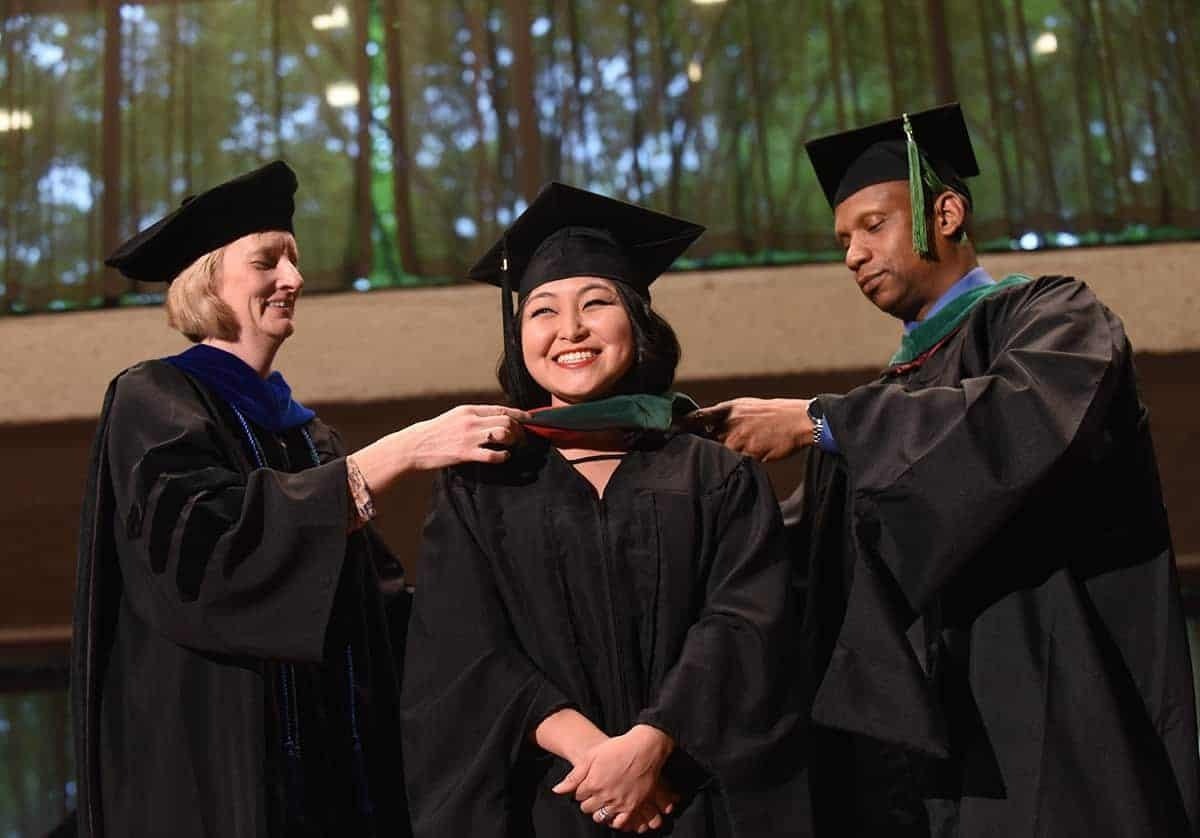The Open University
Contact details
ADDRESS
Walton Hall, Milton Keynes, MK7 6AA

TELEPHONE
+44 (0) 300 303 5303
WEBSITE

Teaching has been largely unaffected by Covid-19 at the Open University (OU), the global pioneer of distance learning that the rest of the higher-education sector has had to try to catch up with during the pandemic.
Some face-to-face tutorials are expected to have returned by October 2022 at the OU’s base in Milton Keynes, Buckinghamshire. All students are classified as part-timers, regardless of whether they study at full-time intensity or not, which allows them to complete their studies without any benefits being affected.
The OU has long championed widening participation in higher education, welcoming students for whom further study was once out of reach. Set up by Harold Wilson’s 1960s Labour government, the university continues to accept students without traditional qualifications.
An OU degree is also considerably cheaper than one gained from a conventional university — a fact not lost on OU students, who pay £6,336 a year compared with £9,250 plus living costs elsewhere.
For those who have not studied for some time or who want to build their confidence or study skills, there are 30-credit access courses, available at half the cost (£792) of other 30-credit programmes, or free of charge to those (in England, Wales and Northern Ireland) from households with an income below £25,000 a year. In Scotland, a full-fee waiver is available for students with an individual income of up to £25,000. About 3,700 access students are expected to gain a free OU place in the 2021-22 academic year.
The university has a Disabled Veterans’ Scholarship Fund that aims to provide 50 full-fee waivers to veterans disabled as a result of military service. The waiver can cover everything from an introductory access module up to an entire undergraduate or postgraduate qualification. There are up to ten full-fee waivers available under the Carers’ Scholarship Fund, three of which are for young carers aged 18-25. These are open to carers from households with income under £25,000 a year, who can show they care for someone for an average of 15 hours per week, or that they have been a carer within the past two years until a bereavement.
These two funds demonstrate the lengths to which the university will go to ensure that no one misses out on an OU education who might benefit from one. There is also means-tested help available to cover the cost of wifi, travel, childcare and study materials. The age profile of OU students is steadily coming down and now stands at 27, with 70 per cent of students continuing to work while they study.
The university offers a full range of undergraduate courses and modules, including a remodelled Bachelor of Laws degree introduced in October 2021 and a new BSc in geology from 2022. The OU also offers seven degree apprenticeships in England, with more than 3,150 trainees for roles such as chartered manager, senior leader, digital and technology solutions, social worker, police constable, registered nurse and advanced clinical practitioner, and one higher nursing associate apprenticeship. In Scotland, there are three graduate apprenticeships (covering BScs in cybersecurity, software development and an MSc in cyber-security) while in Wales the OU offers an applied software engineering degree apprenticeship.
Our rankings have never included the OU because the absence of campus-based undergraduates would place it at a disadvantage in comparison with traditional universities. There are no entrance requirements, for example, and no need for physical facilities for students.
Where comparisons are possible, the OU generally performs well. Just under three-quarters of the OU’s submission for the Research Excellence Framework in 2014 was considered world-leading or internationally excellent. Music was outstanding, with 94 per cent of work submitted reaching the top two categories. Art and design, and electronic engineering also did well.
More than two million students in 157 countries have benefited from an OU education since its inception in 1969 and an enduring partnership with the BBC has allowed programming to reach an estimated 264 million people over the past half century.
The university employs thousands of part-time tutors around the country to guide students through their degrees. Its “supported open learning” system allows students to work where they choose: at home, in the workplace or at a library or study centre. Tutorials, day schools or online forums and social networks provide contact with fellow students (subject to Covid restrictions) and work is monitored by continual assessment, examination or assignment.
Efforts to expand the university’s reach continue. From its beginnings as a pilot scheme with a single Job Centre Plus office, the OU’s Open Doors to Success programme of courses offers free training to jobseekers to increase their employability from more than 750 centres. Participants can earn digital badges to add to their CV.
